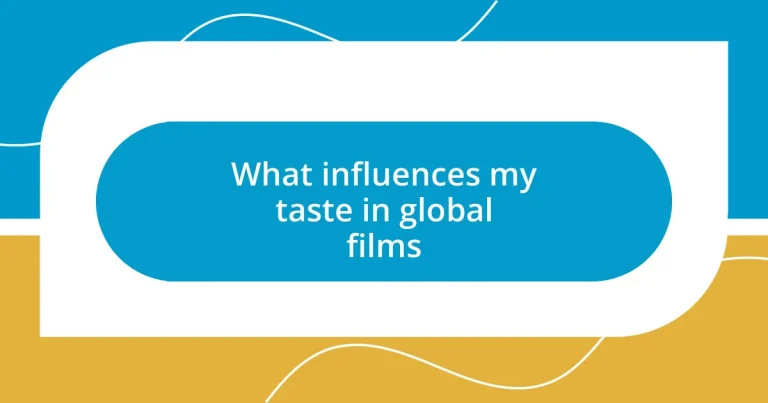Key takeaways:
- Personal film taste is influenced by life experiences, nostalgia, and emotional connections, shaping individual preferences and reflections.
- Cultural elements in films, such as language and social issues, enhance storytelling and provide insight into various identities and values.
- Global trends, including streaming platforms and social media, expand access to diverse films and enhance awareness of significant societal themes.
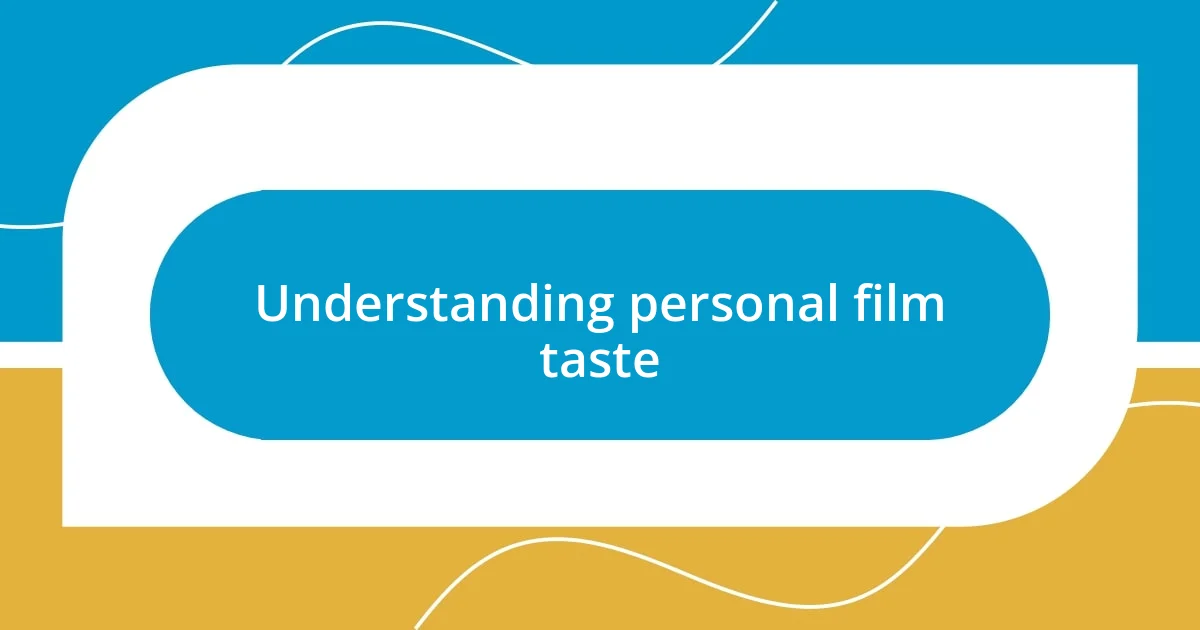
Understanding personal film taste
Understanding personal film taste is a fascinating journey that often reflects our life experiences. I remember the first time I watched a foreign film; it was a deeply emotional experience that transported me into another culture. Have you ever felt that spark from a film that seemed to resonate with your own life story?
Our tastes are shaped by a variety of factors, including our upbringing, social circles, and even the era we grew up in. For instance, I often find myself drawn to 90s films filled with nostalgia, which reminds me of my childhood, growing up during that vibrant decade. Does your taste in films evoke memories or emotions that tie back to significant moments in your life?
When I explore global cinema, I notice that themes of love, loss, and identity are universal, yet each culture presents these themes in unique ways. I once watched a Japanese film that made me reflect on the concept of honor, something I hadn’t considered deeply before. Have you experienced a film that challenged or changed your perspective on a cultural or social issue?
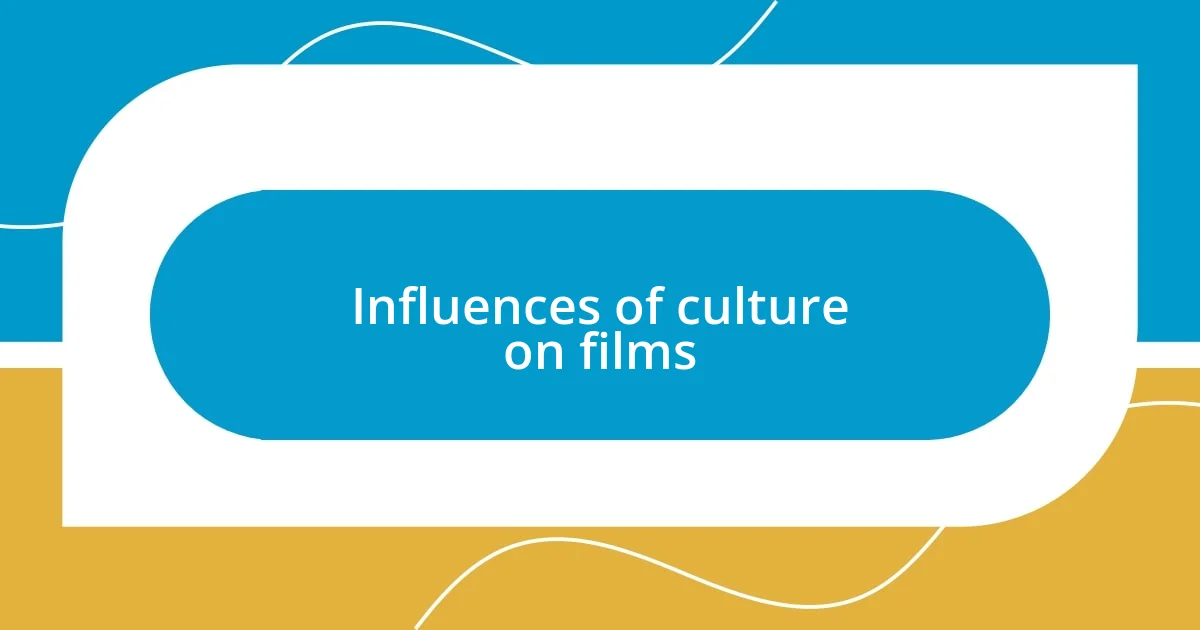
Influences of culture on films
Cultural influences deeply shape the stories we see on screen. I’ll never forget watching an Indian film that tackled familial duty and personal ambition; it echoed my own experiences growing up with a strong sense of family traditions. It’s compelling how customs and values can transform a simple narrative into a powerful exploration of identity and belonging.
- The use of language and local dialect enriches authenticity in storytelling.
- Traditional music and dance often reflect cultural heritage, captivating audiences.
- Iconic symbols, like the red dress in Chinese cinema, convey deeper meanings.
- Social issues depicted in films create awareness and understanding across borders.
- Nuances in humor can showcase cultural differences, making certain stories resonate more.
These elements reveal not just the plot but also the intricate threads of culture, making each film a unique window into a different way of life.
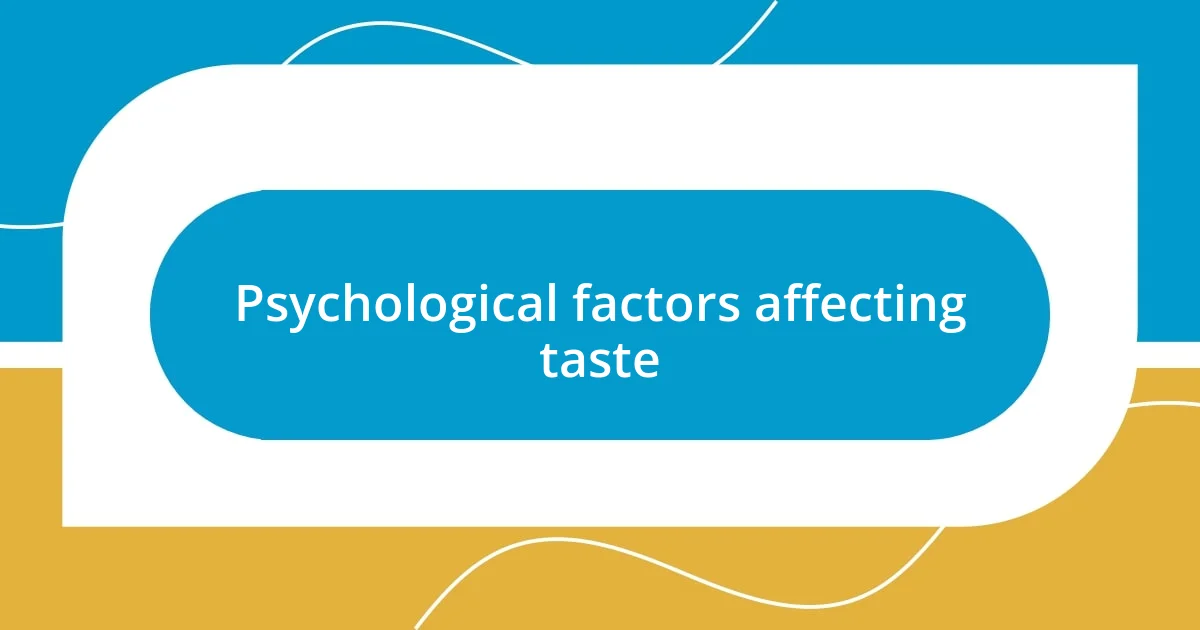
Psychological factors affecting taste
Exploring psychological factors that influence my taste in films always fascinates me. One vivid example is the power of nostalgia; I find myself gravitating toward films that remind me of my late grandmother. The moment a particular song plays in a film, it’s like I’m transported back to her living room, watching old films together, creating a bridge between past and present. Isn’t it interesting how memories can steer our preferences so profoundly?
Moreover, the concept of emotional connection plays a critical role in shaping my film choices. I tend to favor narratives where characters undergo significant personal growth or face moral dilemmas. This draws a parallel to my moments of introspection where I’ve grappled with life decisions. Isn’t it remarkable how films can mirror our internal struggles and offer catharsis? It’s almost like looking into a mirror that reflects not just a story but my own soul.
Lastly, the psychological impact of genre preferences cannot be overlooked. Personally, I’ve noticed that during stressful times, I gravitate towards light-hearted comedies. They provide a much-needed escape and laughter, lifting my spirits even after a long day. How about you? Do you have certain genres that you turn to based on your mood or life circumstances?
| Psychological Factor | Description |
|---|---|
| Nostalgia | Preference for films that evoke memories of significant life events. |
| Emotional Connection | Favoring narratives that resonate with personal struggles or growth. |
| Genre Preference | Choosing films based on current mood or emotional needs. |
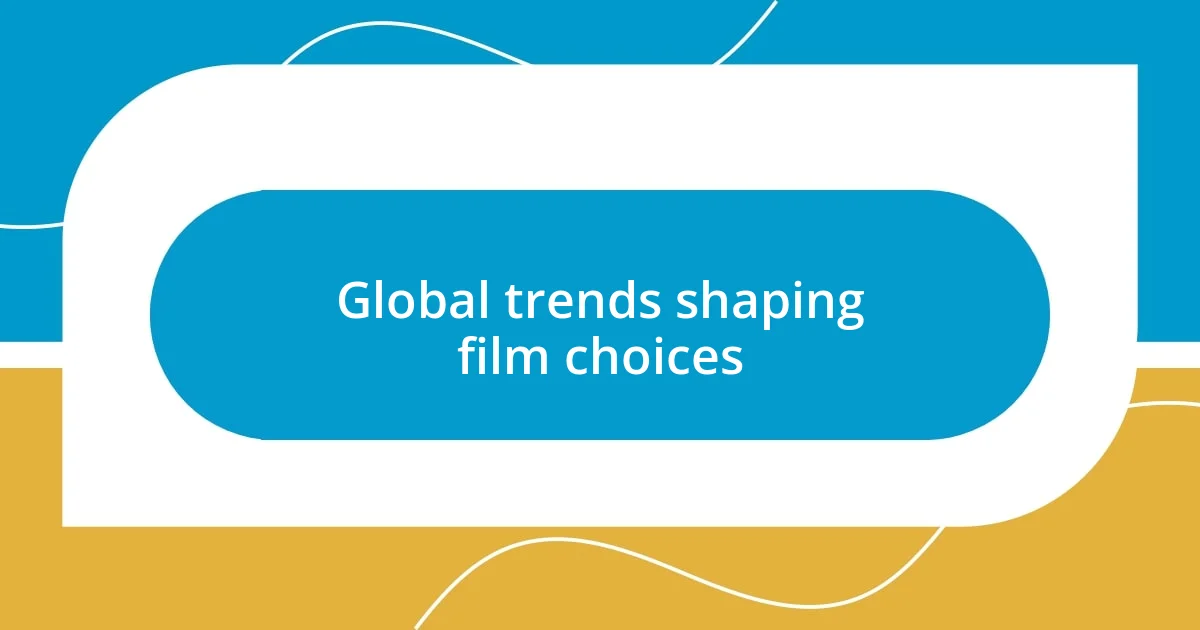
Global trends shaping film choices
Global trends play a pivotal role in shaping our film choices today. For instance, I often notice how the rise of streaming platforms brings diverse content right to my fingertips. It’s exhilarating to scroll through a vast library of international films, each representing different cultures and perspectives that I might not otherwise encounter. Doesn’t it feel like a cinematic world tour from my couch?
Additionally, the influence of social media cannot be understated. I find myself swayed by recommendations and trending discussions on platforms like Twitter and Instagram. When I see friends raving about a particular film, I can’t help but feel intrigued. It sparks a curiosity to explore stories that resonate with others, allowing me to connect on a deeper level. Have you ever watched something simply because it blew up online?
Finally, the emphasis on social issues in contemporary films is truly striking. Films today are not just entertainment; they provoke thought and inspire action. I recall watching a documentary that shed light on environmental issues, leaving me motivated to make small changes in my daily life. It’s empowering how films can amplify voices and spur social consciousness, making our viewing choices feel more significant. How do you feel when a film ignites a sense of awareness or activism within you?

Evaluating individual film experiences
Reflecting on my individual film experiences often reveals how atmosphere and setting can enhance my enjoyment. I remember watching a foreign film set in a vibrant market, the colors and sounds enveloping me like a warm hug. It’s captivating how a well-crafted environment can transport audiences into a different reality, inviting us to experience life beyond our own confines. Have you ever felt the setting of a film wrap around you, almost making you part of the story?
I also find that my mindset greatly influences how I perceive and evaluate films. For instance, after a tiring week, I might watch a gripping drama and appreciate the artistry of storytelling more than if I were in a light-hearted mood. Those quiet psychological moments, like a character’s subtle facial expressions, resonate deeply when I’m reflective. I often wonder, do you find that your emotional state alters your understanding of a film’s message?
Another crucial element is the impact of shared experiences with others while watching a film. I recall gathering with friends for a movie night, filled with laughter and popcorn. The collective energy and reactions often enhance the experience, making me appreciate the film in unexpected ways. It’s fascinating how watching something together creates a unique dialogue, allowing us to explore different interpretations and opinions. Don’t you think that sharing a film can transform it into a memorable event?












